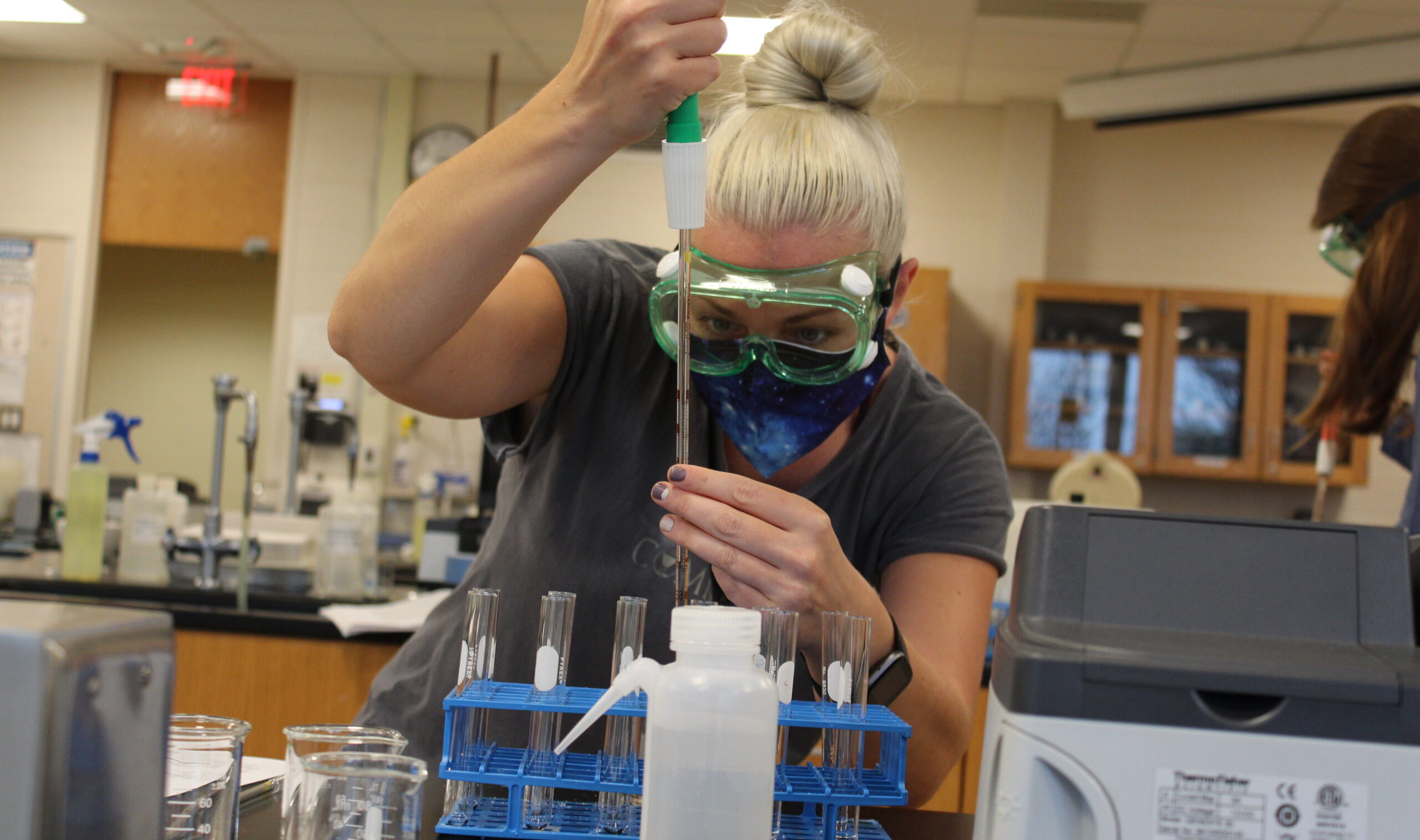What You Will Learn
Chemical technicians play a vital role in fields involving medical drugs, environmental pollution analysis, cosmetics, chemicals, plastics, alternative energy sources, fabrics and foods.
Chemical technicians use analytical techniques, many with state-of-the-art instrumentation, to aid in the development, testing and use of products.
The major purpose of the Chemical Technology Program at County College of Morris (CCM) is to prepare graduates for employment at the technician level for research, testing and quality control laboratories associated with the internationally prestigious pharmaceutical, chemical, personal care products, food industry, environmental, and chemical corporations located in New Jersey.
Students in this program learn modern chemical methods and instrumentation. They will graduate with both theoretical knowledge and practical training and an Associate of Applied Science degree.
Chemical Technology Program Learning Outcomes
- Define and explain the key ideas and foundational concepts in the chemical sciences.
- Execute the proper use of chemical equipment, instrumentation, and laboratory techniques.
- Explain and apply the scientific method including designing, conducting and analyzing experiments.
- Evaluate scientific literature to effectively communicate scientific information in written or oral format.
- Identify and assess ethical issues as they pertain to the chemical sciences.
- Solve problems in the chemical sciences using critical-thinking skills and technology.
- Identify the role played by the chemical sciences as they relate to the individual and society.
Curriculum
We list all of the courses you are required to complete in order to obtain a degree or a certificate.
The checksheets provide a suggested semester-sequence of courses and include information about elective course choices which may be required as part of a degree program. Curriculum Checksheets are revised each year as course requirements are updated.
Careers in the Field
Chemical technicians often work in laboratories or in manufacturing facilities, including chemical manufacturing plants. To enter the occupation, chemical technicians typically need an associate’s degree or two years of postsecondary education. Some chemical technicians receive on-the-job training as well.
The median annual wage for chemical technicians is $48,990. Employment is projected to grow 5 percent from 2020 to 2030. About 7,500 openings for chemical technicians are projected each year, on average, over the decade.
Potential career options include:
- Chemical material and product analysts
- Chemical research technicians
- Forensic technicians
- Pilot plant supervisors
- Plant control chemists
- Pollution analysts
- Product sales representatives
- Quality control technicians
Why Study at CCM
In the course of their studies, students will use laboratory instrumentation to analyze real-world samples. Class sizes are small and students receive individual attention as well as supplemental help and free tutoring, if needed.
Facilities
Our laboratory facilities include not only standard lab equipment, but the most modern instrumentation including:
- Benchtop nuclear magnetic resonance (NMR)
- Gas (GC) and liquid chromatography (HPLC)
- Atomic absorption (AA)
- UV and visible spectroscopy
- Infrared spectroscopy (FTIR)
- Electrophoresis (HPCE)
- Polymerase chain reaction (PCR)
- Fourier transform infrared spectroscopy (FTIR)
Paying For Your Chemical Technology Education
The Biology and Chemistry Department works collaboratively with Career Services in providing opportunities to the students for paid and unpaid internships.
Learn more about our Transfer Services and Career Services here.
Your Chemical Technology Faculty Advisor
Dr. John Berger Professor
Email: jberger@ccm.edu
Office: Sheffield Hall Room 207
Office hours: M 12:30PM – 1:30PM/ W 9:30AM – 10:30AM
Phone: 973-328-5731
Department: Biology and Chemistry



